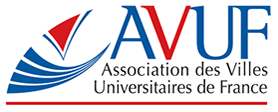
#1. Reputation Isn't Everything
Godefroy Beauvallet, Head of the AXA Research Fund, explains, "In France, pitches focus on reputation, not projects." Since 2007, AXA has granted over €200 million to fund 450 projects in over 30 countries. "French schools focus on their brand whereas schools from the English-speaking world lead with their projects. They only mention their brand once we express interest."
#2. Focus on Fit
Xavier Delattre, Chairman of the French Fundraisers Association (AFF), suggests, "presenting only two projects. Even if they're not the right fit, they will catch the donor's attention." Better still, "pick your projects according to your donor's work and priorities." Beauvallet adds, "Corporate donors want to see the concrete results of the research. How will your project impact society?"
#3. Select the Right Spokesperson
In face-to-face meetings, nothing is more effective than a motivated, convincing spokesperson. Armand de Boissière, Secretary General of the Bettencourt Schueller Foundation, says, "We are looking for someone with an innovative approach, someone involved in the research itself." Delattre explains that at the first meeting with the donor, "some university presidents can open doors with their charisma but many of them are more effective when you're closing the deal."
#4. Leave The Ask for Last
It is the project that will determine how much the donor invests. Delattre advises, "Don't talk figures at the first meeting. If you say that you want €2 million but the donor can only give you €500 thousand, it's over." He also warns, "You might be happy to get €100 thousand whereas you might have gotten €500 thousand if you had gauged the donor's interest better. That means your success was a failure."
#5. Lead the Way
Contrary to popular belief, donors don't want full control, especially when it comes to funding basic research. Beauvallet recalls, "Some schools say, 'Here is what we do. How can we partner with you?' But donors want someone who is in control. They don't want to create the project themselves."






